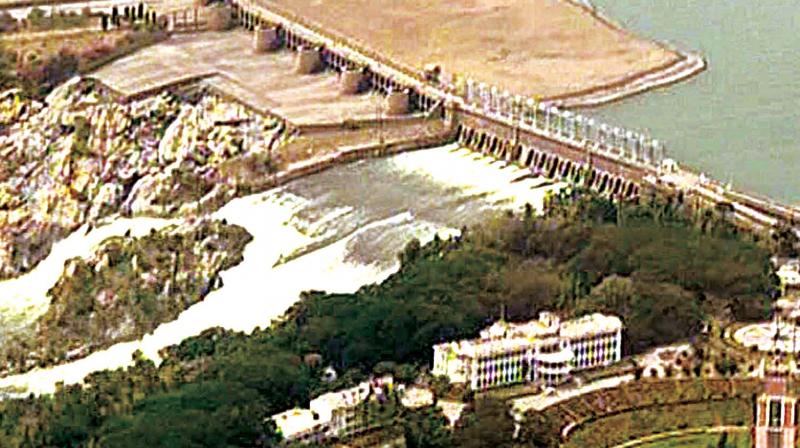Troubled waters: An equitable solution

The verdict of the special bench of the Supreme Court on the appeals filed by Tamil Nadu, Karnataka and Kerala against the final award of the Cauvery Waters Tribunal in 2007 has been a welcome one for Karnataka as it has been given an additional 14.75 tmcft of water and extremely positive for Bengaluru, which has been allocated 4.75 tmcft for “drinking and domestic purposes.”
Healthy precedent
The B.PAC had approached the Supreme Court seeking priority for drinking water and it is indeed gratifying to note that the judgement, while acknowledging Bengaluru's global status, has clearly articulated the "priority for drinking water" principle. This judgement will set a precedent for inter-state water sharing disputes in future.
Right to drinking water
B.PAC had argued in its petition that every citizen had a right to drinking water and brought to the notice of the court that drinking water must get priority over irrigation, hydropower and other requirements. Since the right to drinking water is a part of the Right to Life and as such protected by Article 21 of the Constitution, it could not be denied.
The petition noted that the United Nations' General Assembly explicitly recognised human right to water and sanitation and acknowledged that clean water and sanitation were essential to the realisation of all human rights. It also pointed out that international water law accorded priority to drinking water and the Berlin Rules of 2004, which were an updated version of the Helsinki rules of 1966, considered "right of access to drinking water" under the title "right of persons."
Rapid urbanistaion
Recalling that the population of Bengaluru was about one crore or more (approximately) and growing, B.PAC noted that the total residential households in the city had grown at a compounded annual growth rate of 6 per cent between 2008 and 2012, with an average of 94,000 new households added every year.
It said urbanisation, migration from other parts of India, and an increasing number of middle-class consumers were tending to populate Bengaluru's urban zones that drove the demand for water supply. We requested the court to order the Karnataka government to ensure that the drinking water requirements of the city and the Cauvery Basin districts were fully met with the supply of 26 tmc from the reservoirs of the Cauvery basin.
Equal ownership
The Supreme Court in its judgement on the award of the Cauvery Water Disputes Tribunal held that the water of an inter-state river passing through corridors of the riparian states constituted a national asset and no single state could claim exclusive ownership of it. It clearly took the principle of equitable apportionment internationally recognised by the Helsinki Rules, Compione Rules and Berlin Rules, which have been incorporated in the 1987 to 2002 National Water Policies, as the guiding factor for resolving disputes over an inter-state river.
Bengaluru’s global status
The court further said that the drinking water requirements of all the states had to be placed on a higher pedestal than other requirements.
While recalling that the tribunal had drastically reduced Karnataka's share of water for domestic and industrial use as only one-third of Bengaluru fell within the river basin and on the presumption that 50 per cent of its drinking water requirement would be met from ground water supply, the court said this view ignored the basic principle pertaining to drinking water and was unsustainable. Keeping in mind the global status that the city had attained, it awarded it an addition of 4.75 tmc and Karnataka as a whole, an additional 14.75 tmc of water.
Over to state government
It is now up to the Karnataka government to decide how much drinking water will be allocated to Bengaluru city. B.PAC's case was heard in September 2017 by a three judge bench of the Supreme Court and was argued by well known attorney, Harish Salve. We are very grateful for his efforts to get the citizens of Bengaluru their right to life. B.PAC is also truly indebted to the Supreme Court for considering its petition and enunciating two clear principles, namely that water is a national resource and individual states cannot lay claim to it and that there has to be equitable sharing, giving primacy to drinking water over all other needs.
The judgment Will set a precedent for water sharing disputes in future as it clearly took the principle of equitable apportionment internationally recognised by the Helsinki Rules, Compione Rules and Berlin Rules, which have been incorporated in the 1987 to 2002 National Water Policies, as the guiding factor for resolving disputes over an inter-state river...
It is now up to the Karnataka government to decide how much drinking water will be allocated to Bengaluru city
- Drinking water must get priority over irrigation, hydropower and other requirements. Since the right to drinking water is a part of the Right to Life
- Urbanisation, migration and increasing consumers were driving water supply demand in Bengaluru's urban zones

